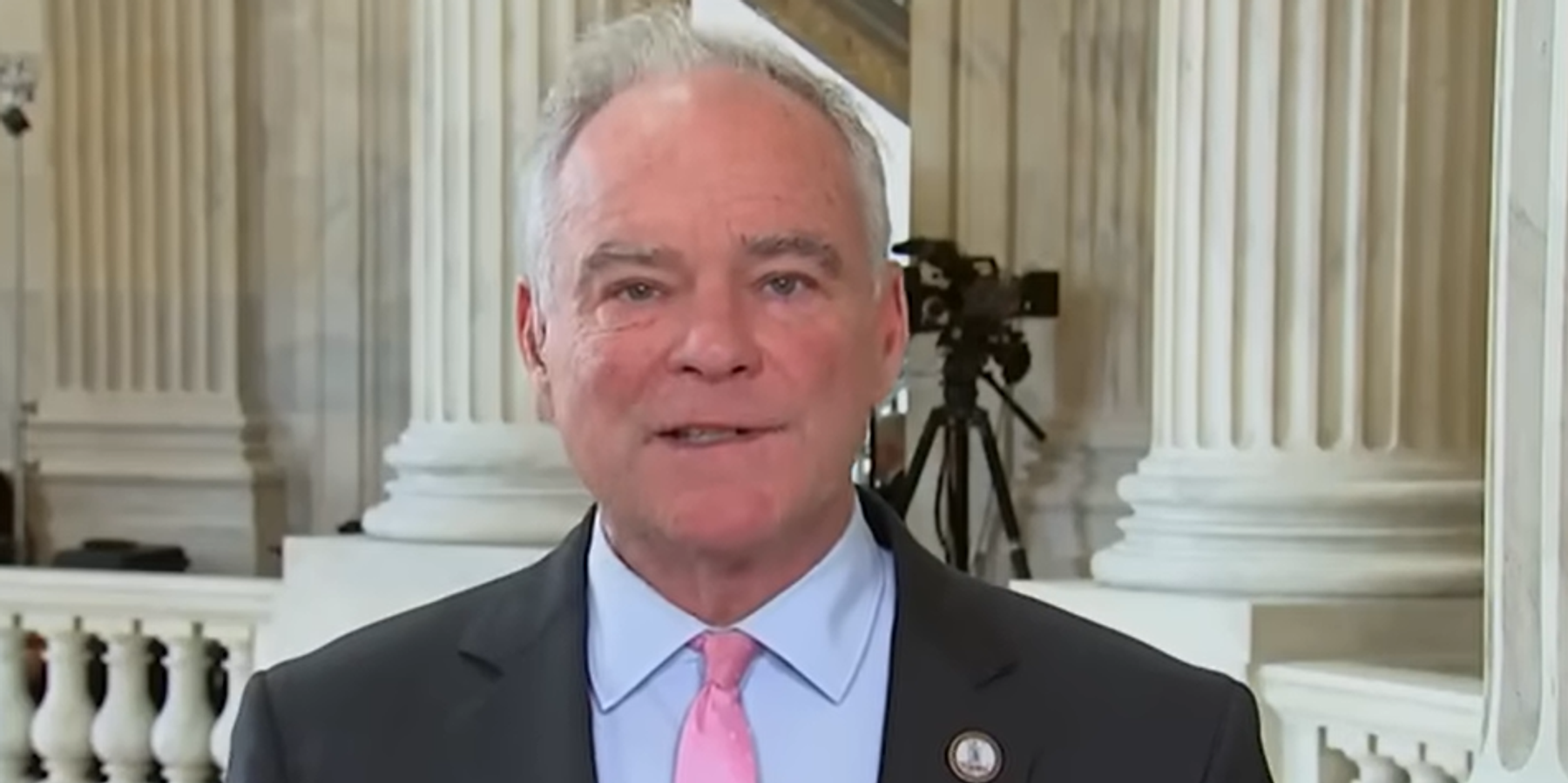As Israel and Iran continue to exchange blows, accelerating prospects for another major conflict in the region, Sen. Tim Kaine (D - Va.) is introducing a war powers resolution that would force a Senate floor debate and vote prior to any use of U.S. military force against Iran, except in the case of self-defense.
“It is not in our national security interest to get into a war with Iran unless that war is absolutely necessary to defend the United States,” Kaine said as he introduced the legislation. “I am deeply concerned that the recent escalation of hostilities between Israel and Iran could quickly pull the United States into another endless conflict.”
Kaine, a member of the Senate Armed Services and Foreign Relations Committees, added: “the American people have no interest in sending servicemembers to fight another forever war in the Middle East. This resolution will ensure that if we decide to place our nation’s men and women in uniform into harm’s way, we will have a debate and vote on it in Congress.”
The legislation can be considered on the Senate floor after 10 calendar days.
Sen. Bernie Sanders (I-Vt.) posted on X Saturday that he would introduce legislation that would block the use of federal funding for military force against Iran without Congressional authorization to do so, again with the exception of the U.S. acting in self-defense.
President Trump said Sunday that “it’s possible” the U.S. could get involved in Israel’s ongoing offensive against Iran, which Israel started with strikes targeting Iran’s nuclear facilities, top scientists, and senior military officials. The U.S., which gave Israel a “green light” to attack Iran, has been helping Israel strike down incoming ballistic missiles and drones. The U.S. is also shifting its military resources in the Middle East in response to the strikes.
Iran’s foreign minister said Sunday that Israel’s attack on Iran could not have happened "without the agreement and support of the United States,” explaining that Iranian officials do not believe repeated U.S. claims of non-involvement in Israel’s attack.
In 2020, Kaine had similarly led a Iran war powers resolution to prevent military involvement in hostilities with Iran without congressional approval; it passed through the Senate with bipartisan support but was subsequently vetoed by President Trump.
RS contacted Sen. Kaine’s office to request a comment about the legislation, which directed the publication to its statement on the legislation.
- After Trump vetoed the Iran war powers resolution, Congress must continue to act ›
- US lawmakers blast Israel, urge against war with Iran ›
- Israel's war on Iran broke the nuclear non-proliferation treaty | Responsible Statecraft ›
- Senate blocks effort to rein in Trump's war on 'narco-terrorists' | Responsible Statecraft ›
















